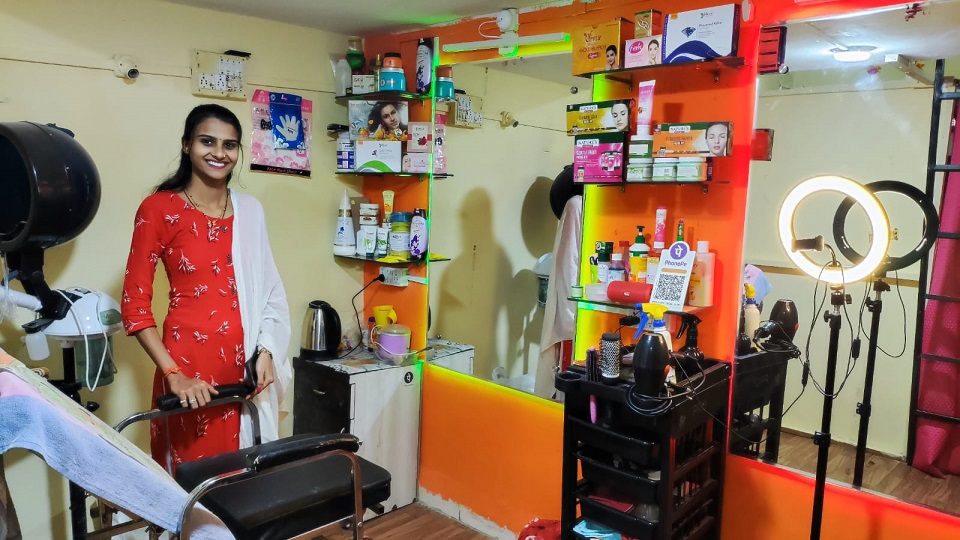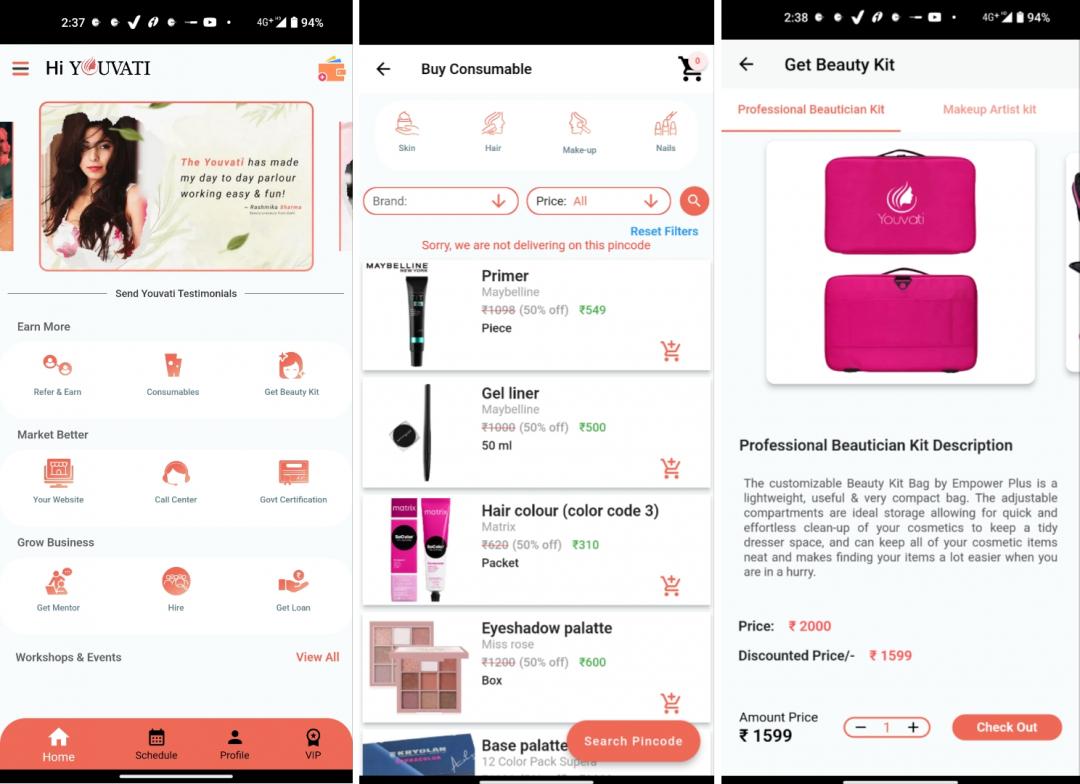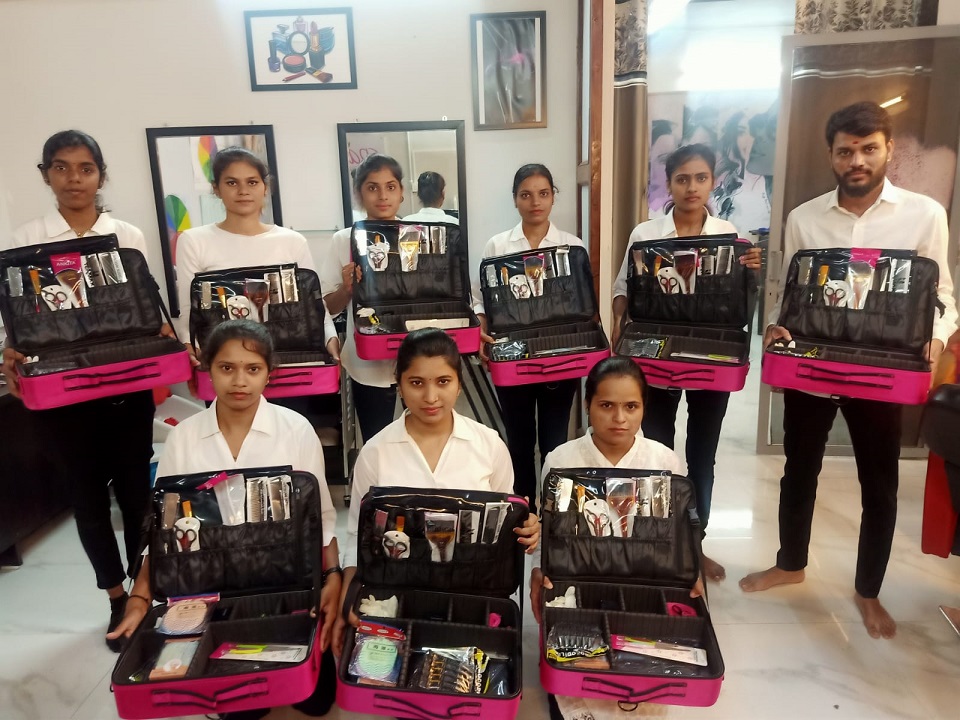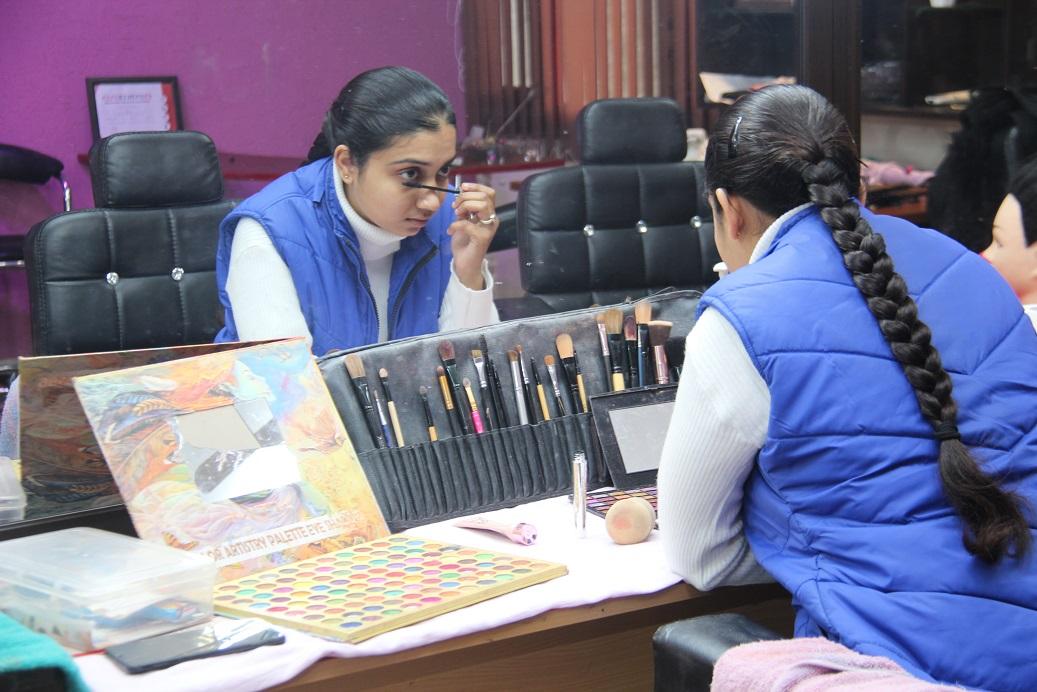Developing a super app for women beauty-entrepreneurs in India
India has the youngest population of the world and is one of its fastest growing economies. However, this growth story has left a key demographic behind: women. Their labour force participation rate remains among the lowest in the world and even continues to decline. A 2019 study by Google and Bain & Company revealed that only one out of five Indian enterprises were owned by women. Even among these, a number were not actually controlled or run by women. If India is to truly reap benefits of its demographic dividend in the next decade, it needs to accelerate women entrepreneurship.
Youvati, a new app developed by Empower Pragati, aims to professionalize women beauty-entrepreneurs (BPs) in India.
What is the problem?
According to industry estimates, there are 65 lakhs (6.5 million) beauty salons in India, but only 30 per cent of them are registered. Over two thirds of these salons are owned and run by women and young girls from low-income groups, who form part of the informal sector. Most of these parlours are home-based, because such parlours are easy to set up, cost-effective and in line with social constraints like restrictions women’s mobility.
Most of these women have learnt on the job, working as apprentices at parlours run by women from similar backgrounds. Social restrictions hamper their ability to access any sort of formal training. Most of the services they offer are done manually. They do not have equipment like steamers, ultrasonic, galvanic, or airbrush machines, nor are they trained to use them. As a result, the bouquet of services they offer remains limited. This severely constrains their income levels.
Additionally, most married women running their own parlours are also the primary caregivers of their households, and that responsibility invariably takes precedence over everything else. Access to finance is another major bottleneck, which has prevented women from enrolling in formal training programmes, fulfilling their working capital needs, and expanding their business.
The Covid-19 pandemic has aggravated this situation. A 2022 study by Samhita Social Ventures revealed that the income level of small beauty parlours led by women was still fifty per cent lower than before the pandemic. These micro businesses are dependent on daily cash inflow. Moreover, their savings were exhausted during the lockdown, and many even reported that their spouses were out of jobs, leaving them cash crunched.
Due to all these factors, most beauty-entrepreneurs are unable to run their parlours profitably and continue to depend on their family to help them keep their business afloat. This greatly impacts the women’s dignity and confidence.

A new super-app
Empower Pragati works at the intersection of skills training, job creation and income generation for marginalized and low-income groups. Our programmes are mainly targeted towards youth, women, and informal sector workers.
Among others, we had been running a professional beautician course since 2018. Most women who enrolled were already running their own beauty parlours and wanted to get up-skilled. Through extensive interactions, we realized that they needed help much beyond training to help them expand their business.
This is why we conceptualised a new super-app for the complete management of individual beauty parlours. It addresses the women’s training, business, and financial needs. Through the app, the BP’s will be able to access online and offline courses, avail loans at low interest rates or in the form of returnable grants, and run their businesses more efficiently. It will also have a feature to refer and earn: By referring students for our fee-based beauty courses, BP’s will have an opportunity to earn an additional four to five thousand rupees every month.

When we were conceptualizing the app, we did extensive in-depth interviews with parlour women in and around the communities in which we operate. We also interviewed the women who had previously enrolled in any of our courses. These interviews were conducted using design thinking techniques.
The interviews helped us understand the needs of BPs and develop new features. For example, women shared that they lost at least half a day of business to purchase beauty consumables at the market. Further research revealed that they were buying these materials at a high price point. So we introduced a feature to buy consumables via the app. As we purchase on wholesale prices, we can offer them better rates.
Similarly, we realized that most of these women did not have a digital presence. So we came up with the idea of creating a portfolio for them through the app. The portfolio could be shared with existing and potential customers in the form of a web link.
Another gap we found was that sometimes, during festive seasons, the women require a few helping hands – but only for a few days or hours. Given the informal nature of this employment, they are unable to find a resource and end up losing potential business. Now they will be able to hire someone through the app. We will cater to this demand by sending our existing students, for whom this practical experience will be of immense value.
Our testing also revealed that there is a demand to access the app in regional languages. This is currently under development. At the same time, we prefer to keep the app minimalistic, because having too many features to start off with can be overwhelming for the audience. For women who are not tech-savy, we are adding a feature for instant call support.

Improving accessibility through flexible payment options
One core feature of the app is access to online and offline beauty courses. To cater to the financial constraints of the women, we offer flexible payment options:
- EMI Payment model: Women who cannot pay upfront are given an option to pay in monthly instalments. We do not charge interest, and the collection is done locally. Empathy is an integral part of the model: If their financial situation does not allow them to pay the full rate on time, the women have flexibility to skip or defer an instalment.
- Skill Loans: We have tied up with several NBFC’s (Non-Banking Financial Corporations) to provide skill loans to the women. This allows them to design their own payment plan wherein the student can pay part of the instalment after completing the course.
- Pay after placement: Widows, single mothers or other women who cannot afford to pay the entire fee during the course can pay partial fees once they have secured a job or set up their own parlour.
- Scholarship model: Women from extremely marginalized backgrounds will be awarded a scholarship for the partial course fee. We are currently in the process of raising funds for this model, and it will be rolled out soon.
The app is available on playstore and can be downloaded by clicking on this link.
